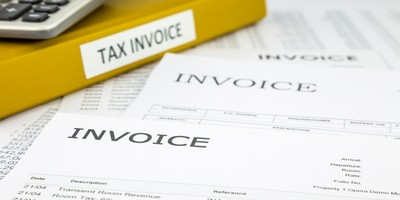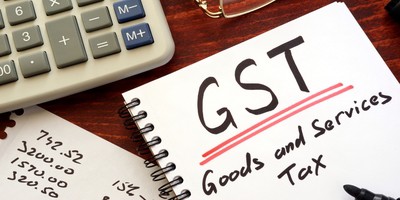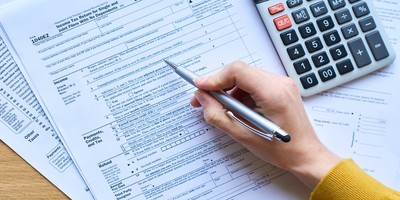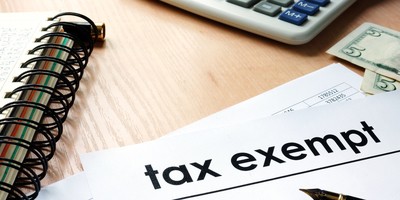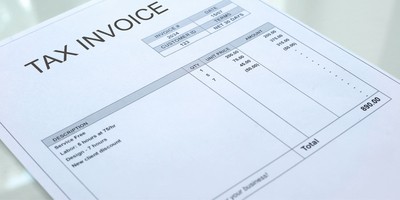The Ultimate Guide to Understanding Singapore’s GST for Your Company
Are you a business owner in Singapore looking to understand the intricacies of Goods and Services Tax (GST) for your company? Look no further!
Imagine this scenario: You’ve just started your business and suddenly find yourself swimming in a sea of tax regulations, confusing forms, and deadlines. The whole process feels overwhelming, and you’re left wondering where to even begin. But fear not because in this comprehensive guide, we’re here to demystify Singapore’s GST and help you navigate through the complexities with ease.
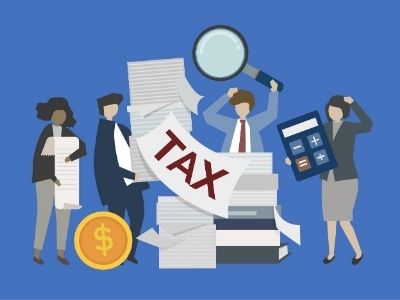
In this blog, we’ll address the pain points that business owners like you often face when dealing with GST. From the basics of what GST is and who needs to register for it to the different GST schemes and exemptions available, we’ve got you covered.
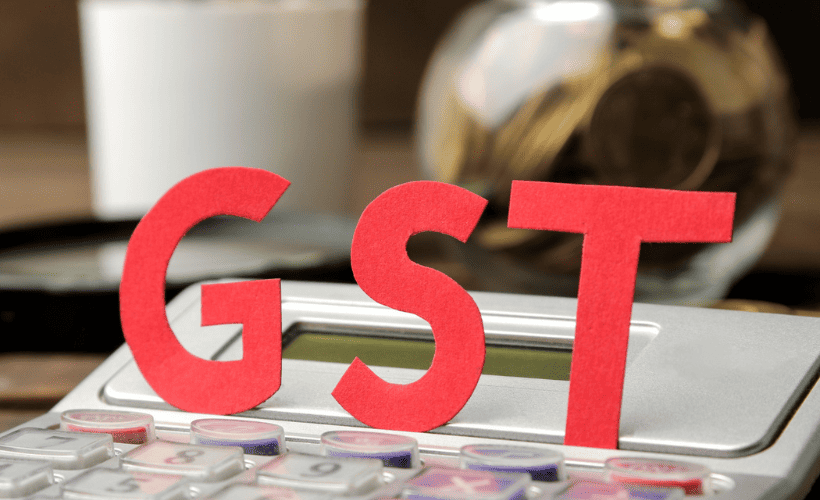
What Is Singapore’s GST?
Singapore’s Goods and Services Tax (GST) is a value-added tax imposed on the supply of goods and services in Singapore. It is governed by the Inland Revenue Authority of Singapore (IRAS) and is levied at a standard rate of 8% for 2023 and 9% for 2024 onwards.
How Does GST Work?
GST operates on a comprehensive system of taxation, where businesses registered for GST are required to charge and collect the tax on their taxable supplies. The tax amount collected is known as output tax, which must be reported and remitted to the IRAS.
On the other hand, businesses can also claim input tax, which is the GST paid on their purchases and expenses related to their business activities.
What Are the Registration Requirements?
Businesses with an annual turnover of SGD 1 million or more are required to register for GST. However, voluntary registration is allowed for businesses with a turnover below this threshold.
Once registered, businesses must charge GST on their taxable supplies and are eligible to claim input tax on their purchases.
It is important to note that certain supplies, such as the lease of residential property and financial services, are exempt from GST.
What Are the Responsibilities of a GST-Registered Business?
A GST-registered business must file GST returns with the IRAS on a quarterly basis. These returns provide details of the business’s output tax, input tax, and the net amount of GST payable or refundable.
Additionally, businesses must display their GST registration number on their invoices, receipts, and other relevant documents. It is the responsibility of the business to accurately calculate and charge the correct GST amount on their taxable supplies. Compliance with the GST regulations is crucial to avoid penalties and audits by the IRAS.
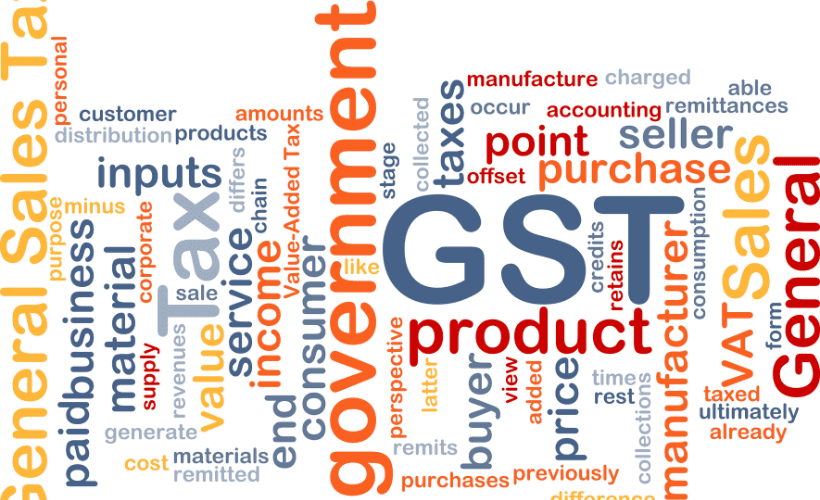
Responsibilities of a GST-Registered Business
Once a business in Singapore becomes GST-registered, it takes on several responsibilities to comply with the regulations set out by the Inland Revenue Authority of Singapore (IRAS). Understanding these responsibilities is crucial for any company operating within Singapore’s GST framework. Let’s take a closer look at the key responsibilities that GST-registered businesses need to fulfill.
Proper Record-Keeping
GST-registered businesses are required to maintain accurate records of all transactions, including sales, purchases, and expenses. This includes keeping invoices, receipts, credit notes, and other relevant supporting documents. These records should be kept for at least five years as they may be requested by the IRAS for audit purposes.
Issuing Tax Invoices
When making a taxable supply to another GST-registered business, it is essential to issue a tax invoice. The tax invoice must contain specific details prescribed by the IRAS, such as the business name, GST registration number, item details, quantities, prices, and the amount of GST charged.
Charging GST on Supplies
A GST-registered business is required to charge GST on the supply of goods and services if they fall within the scope of GST. The GST amount charged should be clearly indicated on the tax invoice or receipt provided to the customer. It is crucial to ensure that the correct GST rate is applied based on the nature of the supply.
Filing GST Returns
GST-registered businesses must file their GST returns with the IRAS either on a quarterly or monthly basis, depending on their turnover. The returns should accurately reflect the net amount of GST collected and the net amount of GST paid on purchases and expenses during the reporting period. It is important to file the returns within the stipulated deadlines to avoid penalties or fines.
Paying GST to IRAS
After filing the GST returns, businesses are required to pay the net amount of GST due to the IRAS. This is calculated by subtracting the input tax (GST paid on purchases and expenses) from the output tax (GST collected on sales). Timely payment is crucial to avoid any late payment penalties or interest charges.
Compliance with GST Regulations
GST-registered businesses must comply with all GST regulations, including accurate reporting, maintaining proper records, and adhering to the requirements set out by the IRAS. It is essential to stay updated with any changes in the GST laws or regulations to ensure compliance.
Understanding GST Rates and Calculation
GST rates in Singapore are categorized into three main tiers: standard rate, zero rate, and exempt rate. The rate depends on the nature of the goods and services you’re providing. It is essential for businesses to understand these rates and their implications to comply with Singapore’s GST regulations.
Standard Rate
The standard GST rate, currently set at 8%, applies to most goods and services that are not classified as zero-rated or exempt. It is crucial for businesses to ensure they charge and collect the appropriate GST amount on their taxable supplies.
Zero Rate
Certain goods and services are zero-rated, meaning they don’t have GST associated with them. This includes essential items like exported goods, international services, and investment in some precious metals. Businesses that make zero-rated supplies can claim the input tax paid on their purchases.
Exempt Rate
Some goods and services are exempt from GST, meaning no GST is charged or claimed on these transactions. Examples of exempt supplies include the lease of residential properties, financial services, and certain educational services. It is important for businesses to understand the difference between zero-rated and exempt supplies to ensure proper GST treatment.
GST Calculation
Calculating GST accurately is essential for businesses to ensure compliance with Singapore’s tax laws. The following steps outline how GST is calculated:
- Determine the taxable amount: Start by identifying the value of the goods or services provided, excluding GST.
- Calculate the GST payable: Multiply the taxable amount by the applicable GST rate (e.g., 8%) to determine the GST payable.
- Add GST to the taxable amount: Add the GST payable to the taxable amount to obtain the total value of the transaction.
Example Calculation
Let’s consider an example to illustrate how GST is calculated:
Suppose a company sells a product for $100 (excluding GST), and the applicable GST rate is 8%.
Taxable Amount: $100
GST Payable: $100 * 8% = $8
Total Transaction Value: $100 + $8 = $108
GST Compliance and Record-Keeping
In order to ensure compliance with Singapore’s Goods and Services Tax (GST), it is essential for businesses to maintain accurate records and meet certain obligations. This section will provide an in-depth overview of GST compliance requirements and record-keeping obligations that companies need to be aware of.
GST Registration
Before diving into compliance and record-keeping, it’s important to understand the GST registration process. Any business with an annual turnover of SGD 1 million or more must register for GST. However, voluntary registration is also possible if the turnover is below the threshold. Once registered, businesses are assigned a unique GST Registration Number, which should be displayed on all invoices and official documents.
Filing GST Returns
GST-registered businesses are required to file GST returns on a regular basis. Returns are typically submitted on a quarterly basis, although some businesses may be required to file monthly returns. It is vital to accurately report the taxable supplies made (output tax) and the purchases and expenses incurred (input tax) during the specified period. Filing returns late or with incorrect information can result in penalties.
Record-Keeping Requirements
To ensure proper compliance, businesses must maintain detailed GST records. This includes keeping invoices, receipts, credit notes, and other supporting documents for a minimum of five years. Records should be organized, easily accessible, and clearly show the nature and value of each transaction. By maintaining accurate records, businesses can demonstrate transparency and provide evidence to tax authorities if requested.
Tax Invoices and Documentation
For transactions subject to GST, businesses must issue tax invoices to their customers. Tax invoices should contain specific details such as the supplier’s name and address, GST registration number, invoice number, and the amount of GST charged. Additionally, businesses need to be familiar with the rules surrounding exempt supplies (not subject to GST) and zero-rated supplies (subject to 0% GST). Different requirements apply to these types of transactions, and it’s crucial to accurately document them.
International Transactions
When engaging in international transactions, businesses must be aware of the GST implications. For services provided to overseas customers, the general rule is that GST applies to services that are consumed in Singapore.
Overseas Tourists and Low-Value Goods
International tourism plays a significant role in Singapore’s economy, with numerous visitors coming to explore the vibrant city-state. In order to facilitate a seamless shopping experience for overseas tourists, the Goods and Services Tax (GST) regulations have certain provisions in place for low-value goods.
GST on Low Value Goods
Foreign visitors who purchase goods in Singapore and intend to bring them out of the country can enjoy GST relief. Low-value goods refer to items that have a total value, including GST, not exceeding SGD 400. These goods can be brought out of Singapore without incurring GST charges. It’s important to note that the value of each item purchased will be taken into consideration.
Eligibility Criteria
To qualify for GST relief on low-value goods, overseas tourists must meet the following eligibility criteria:
- Visitors must not stay in Singapore for more than 365 days in total within a span of 24 months.
- Goods must be brought out of Singapore within two months from the date of purchase.
- The goods must not be consumed or used in Singapore for any purpose.
Proof of Eligibility
To enjoy GST relief, overseas tourists need to present the following documents upon departure:
- Valid passport or travel document.
- Proof of purchase or tax invoice for the goods.
- Boarding pass or flight ticket showing departure from Singapore.
Applicable to Goods Only
Before diving into compliance and record-keeping, it’s important to understand the GST registration process. Any business with an annual turnover of SGD 1 million or more must register for GST. However, voluntary registration is also possible if the turnover is below the threshold. Once registered, businesses are assigned a unique GST Registration Number, which should be displayed on all invoices and official documents.
Voluntary GST Registration
Overseas tourists who frequently visit Singapore and make substantial purchases may also consider applying for voluntary GST registration. By doing so, they can claim GST refunds for their eligible purchases. Voluntary GST registration allows tourists to enjoy the benefits of a GST-registered person, such as claiming input tax credits for GST paid on business expenses.
Conclusion
Understanding Singapore’s Goods and Services Tax (GST) is crucial for businesses operating in the country. With the information provided, you now have a comprehensive guide to navigate through the complexities of GST.
By following the guidelines set by the Inland Revenue Authority of Singapore (IRAS), you can ensure compliance and avoid costly penalties. As a reliable source of information, our blog has covered various aspects of Singapore’s GST, including its applicability, registration process, filing requirements, and frequently asked questions.
Frequently Asked Questions
If you leased a non-residential property in Singapore, you will need to register for GST and pay GST on all rental income and gains from the property.
If you are a foreigner selling goods in Singapore, you are subject to the Goods and Services Tax (GST), which is a national sales tax.
If you are registered for GST, you will need to file your annual returns and pay your GST dues quarterly. You will also need to keep accurate records of the purchases you make and the value of the supplies you receive.
If you make taxable supplies of goods or services in Singapore, you will need to pay GST. This includes supplies of goods and services to customers in Singapore, as well as supplies to customers outside of Singapore but through a Singapore permanent establishment.
The responsibilities of a GST-registered business in Singapore include ensuring that all goods and services sold or supplied to customers are taxable and reporting and paying GST on all taxable transactions. Businesses must also keep accurate records of all taxable transactions and file monthly GST returns.
The Goods and Services Tax (GST) is a tax that applies to most goods and services sold in Singapore. The GST is a value-added tax, which means that the tax is added to the price of the goods or services. The GST is levied at 8% on the value of the goods and services.
The process of importing and exporting goods in Singapore is straightforward and relatively simple. Importing goods into Singapore is done by entering the goods into the Customs and Excise Department’s (CED) system.
Goods that are not subject to any import duties or taxes are classified into the following three tariff codes:
- Tariff code 1 includes goods that are not subject to any import duties or taxes and are classified as general goods.
- Tariff code 2 includes goods that are subject to import duties and taxes and are classified as goods of a specific type.
- Tariff code 3 includes goods that are subject to import duties and taxes and are classified as luxury goods. Exporting goods from Singapore is also straightforward and relatively simple.
Once registered, you can voluntarily cancel your registration at any given time. The common occurrences requiring cancellation are:
- When the business is no longer operating.
- When you aren’t trading goods.
- If the owners have changed.
- If the structure of the company has changed.
For comprehensive guidance on claiming GST in Singapore, it’s essential to address all your queries beforehand. Look no further than 3E Accounting, a renowned advisory firm with an excellent track record of providing in-depth insights into Singapore’s GST regulations. Our team comprises highly skilled and experienced professionals in the field of goods and services tax.






